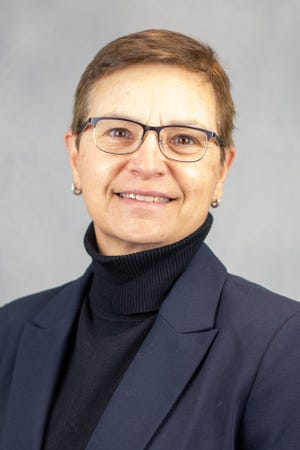The difficulties some LGBTQ+ people face in creating a financial plan
LGBTQ+ persons deficiency some of the social protection nets of straight and cisgender folks in generating economic programs and have problems acquiring trusted, being familiar with professionals to help them.
That’s the foundation of research by Mary Dorn, assistant professor in the Robert W. Plaster College of Small business at Columbia University.

She gained the Best Research Award for her presentation at the 2022 Money Scheduling Annual Convention Dec. 12-14 in Seattle. Her presentation “Later on Life Monetary Preparing Problems: A Unique Viewpoint from Midwest LGBTQ Grownups.” She programs to post it as a research paper to the Journal of Money Planning.
She integrated LGBTQ+ people in their 30s to their 70s to check with them about how they see economic planning and retirement and connected difficulties, Dorn stated.
Several LGBTQ+ people do not have the family members help networks that many others do, she reported.
“They have larger problems,” Dorn said. “They are likely not to have some of the household and there is a degree of fear as it comes to some ageing troubles, like extensive-phrase care.”
They may have no young children or might not be in make contact with with siblings or other household members, Dorn said.
She prompt at the conference that LGBTQ+ men and women really should continue to keep their power of attorney in the glove box of their motor vehicles. Money and health and fitness care powers of lawyer nominates a person to make choices for them if they are not able to do so.
“You hardly ever know exactly where you may perhaps land,” Dorn said of the advice.
“Extended-phrase care can be problematic,” she explained.
Some very long-phrase treatment amenities in Missouri don’t take exact same-sex partners or transgender people today, she reported.
The case that led to marriage equality in the U.S. was an estate planning scenario, Dorn mentioned.
Yet another issue is finding a reliable economic planning experienced, she stated.
“In standard, they are significantly less very likely to meet with financial specialists in an open up fashion,” Dorn explained.
LGBTQ+ individuals need to come to feel approved by money experts, she said. She instructed the tale of a shopper checking out a big company 15 several years ago, exactly where the specialist told the shopper that he would enable them with their funds, but hardly ever shake their hand.
“Persons do, in point, want to aid,” Dorn reported of fiscal gurus. “Inquire ‘how can I be open?'” Investigate language you can use, inquiring an individual their pronouns. It can be just an sign you might be open and small items you can do.”
There’s also a need and a need for more LGBTQ+ people today in the economical setting up field, she reported. Purchasers generally want to see by themselves in the folks serving them.
Beyond that, she claimed it really is planning straight and cisgender economical planners who really don’t have any LGBTQ+ shoppers for the working day they walk in the doorway, she mentioned.
Though financial scheduling goes outside of setting up for retirement, a significant percentage of Americans have accomplished no economical preparing. Which is also correct of LGBTQ+ men and women, she reported.
“I would say they’re in line with all people else,” Dorn mentioned. Individuals with a lot more indicates will help you save much more than all those with fewer usually means.
Financial organizing is holistic, including retirement preparing, money organizing, investments and insurance, she said.
Presenting at the meeting was an honor, she said. It brings with each other economical scheduling lecturers from all above.
“I was seriously very pleased to signify Columbia Faculty there,” Dorn explained. “I assume it serves Columbia College nicely.”
Roger McKinney is the Tribune’s education and learning reporter. You can arrive at him at [email protected] or 573-815-1719. He is on Twitter at @rmckinney9.
